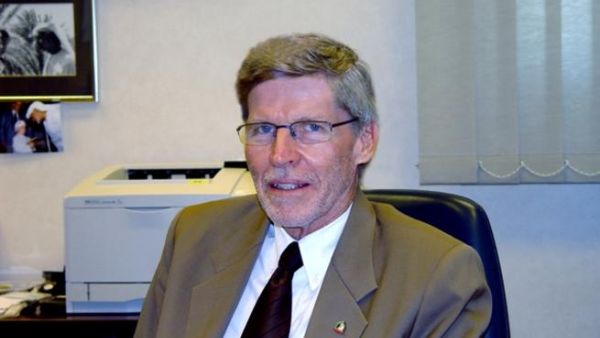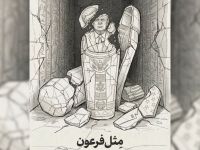Dubai Women's College to organize 6th International Conference on Excellence in Education 2012 on January 10th

Dubai Women's College is organizing “Excellence in Education 2012 Conference” on January 10th. The event will be held in partnership with the Paris-based International Centre for Innovation in Education (ICIE), and other international institutions.
The conference, to get off the ground with a set of high-calibre workshops, has carved a niche for itself as a global educational platform. The previous 5th conferences, staged by ICIE in conjunction with prestigious universities, were convened beginning in 2008 in Paris, Ulm in Germany, Amman in Jordan, Athens in Greece and Istanbul in Turkey.
The outcomes of these conferences, focusing on excellence in education, were of paramount importance. They were published and made available to different institutions for potential benefits.
Dr. Howard Reed, Director of Dubai Women’s College (DWC), said that he is looking forward to meeting ‘Excellence in Education 2012’ conference as it has assembled a distinguished group of innovative educators to share their ideas and enthusiasm and build a network of educators that are passionate about doing it better.
This year's edition will bring together more than 800 government ministers, scholars and educators in different disciplines, providing them with a platform to discuss education-related issues from the perspectives of educators, psychologists, physicists, engineers, doctors, sociologists and decision-makers.
The conference is to focus on educational excellence, quality education, giftedness, creativity, leadership, e-learning, education for peace, learning environment, core education issues, programme development, integrated services and future trends.
The organizers expect participation from ministers of education and higher education as well as presidents of universities and education centres.
Registration is available for everyone interested in getting acquainted with the latest developments in the areas covered by the conference. The targeted audience includes academics, specialists, teachers, and parents, administrators in schools, ministries and universities as well as post-graduate students in relevant majors.
An education exhibition will be held on the sidelines of the conference displaying works by a group of academic institutions, companies and training centres.
A key speaker on the first day of the conference is Ken McCluskey of Winnipeg University in Canada. His speech explores the expansion of enrichment programming to include hitherto marginalized populations: nonconformists, dropouts, the "tough bright", children and youth from minority groups, and young people whose talents surface in domains other than reading, writing, and arithmetic.
His project, already carried out in the Canadian city of Winnipeg, is so successful that it has been supported by some governments in Africa. Experts believe that the United Arab Emirates has contributed to many international projected geared towards promoting literacy in the impoverished countries. McCluskey's initiative harmonizes with these projects.
Also speaking at the key session will be John P. Anchan, of Winnipeg University, who will tackle the role of technology in developing education systems. Anchan is an established educator who has made accomplishments in several countries including the UAE. In his speech at the conference, he will point out that the emerging and increasingly shrinking world with dismantled borders and international networking of technologies has overwhelmed the traditional thinkers in the field of education. He will, moreover, emphasize the effects of education technologies on instruction methods, evaluations, students' performances and trends and knowledge economy.
Meanwhile, Steve Van Bockern of Augustana College in South Dakota, the US, will make a key address titled "The Circle of Courage: A strength-Based Resilient Model for Child and Youth Development".
The Circle of Courage is a strength-based model that challenges traditional deficit-based mindsets about challenged and challenging youth. The Circle of Courage suggests belonging, mastery, independence and generosity are universal growth needs for all children. When the “circle is broken” and needs aren’t met, youth are placed at risk for a host of undesirable outcomes. The model has become a lens for many throughout the world that informs their work with all children and youth.
Speaking on the second day of the conference will be Todd Lubart of Universite Paris Descartes in France. The focus of his speech will be evaluation of potential creativity. Professor Lubart and his team have developed a new battery that allows creative giftedness to be measured. Available in French, English, Arabic, Turkish and German, this battery includes verbal and graphic subtests that measure the two key modes of creative cognition “divergent-exploratory” thinking and “convergent-integrative thinking” in elementary and middle school students.
The unique instrument can be used as an efficient diagnostic tool to identify creative potential and to monitor progress, using pre-tests and post-tests, in educational programmes designed to enhance creativity. Easy to use by psychologists and educators, this instrument can, for example, help school psychologists to identify, in regular schools, children with creative potential.
Don Ambrose, a key educator in giftedness, creativity and quality education, will give a speech tackling malpractices in education and an outlook for future solutions. In his coming lecture, Ambrose will also spell out his view of individual and institutional creativity. He will also highlight key obstacles to education systems and how to overcome them.
In order to discover the ways in which dogmatism distorts and suppresses the development and manifestation of creative intelligence, he initiated an interdisciplinary project, soliciting contributions from eminent scholars in creative studies, gifted education, history, sociology, economics, psychology, educational critical theory, and theoretical physics.
Ambrose teamed up with Robert Sternberg to bring all of these contributions together into a common, interdisciplinary bridge-building forum. The coming session provides some of the results of the project.
The audience will have the chance to debate with him the characteristics of the innovative teachers, the creative classroom environment and the 21st century potential of teachers and students.
The second day of the conference includes a session by Joseph S. Renzulli, of the National Research Centre on the Gifted and Talented at University of Connecticut, the US. He will focus on the latest advances in instructional communication technology. Renzulli has sought since the 1970s to develop education systems in the US, with his endeavours being designed to providing services, programmes and activities for the gifted, developing education and benefiting ordinary students.
His session will highlight the Renzulli Learning System (RLS) that uses a strength-based learning theory called the Enrichment Triad Model that is purposefully designed to promote advanced level learning, creative productivity, and high levels of student engagement by focusing on the application of knowledge rather than the mere acquisition and storage of information.
A question-and-answer session will be held with key speakers McCluskey, Lubart, Ambrose, and Dr. Taisir Subhi Yamin, the conference chairman.
The key session of the third day will be given by Wolfgang Schnotz on the development of representational skills in childhood and adolescence. Based on a top-level German experiment, Schnotz will talk about excellence in education and quality education. Teachers will benefit from strategies than can be utilized in the classroom while researchers will be updated on the latest developments in this field.
He will analyze different forms of representation and their perceptual as well as cognitive demands on learners from the perspectives of cognitive science, developmental psychology and educational psychology. Empirical findings will be presented regarding the development of corresponding representational skills with children and young adolescents. Perspectives for further research and instructional practice will be pointed out.
In his session, Professor Taisir Subhi Yamin will address gifted education, talent development and international practices: past, present and future. The session is designed to acquaint the audience with the present education of the gifted and talented based on a series of practices in different parts of the world, and will address strategies for extending thinking in addition to the importance of programmes designed to develop productive thinking.
It will also define the prerequisites for gifted education programmes and sustainability as well as assessing them. At the end of the lecture, Prof. Yamin will answer questions related to education of the gifted and investment in giftedness.
Mentorship and the realization of potential in gifted, talented and creative individuals will be the focus of a keynote speech by Trevor J. Tebbs of the Psychology Department at Castleton State College in Vermont , the US .
Mentoring has been a cornerstone of human growth and development worldwide for millennia and has been at the centre of attention in the advanced countries. Although not always referred to as mentoring, the powerful influence of older, wiser, knowledgeable and pedagogically-disposed individuals in the lives of others is an experience common to humankind irrespective of epoch, culture, geographical location, language and other conditions separating groups of people.
As a mentor himself, Dr. Tebbs has long advocated for mentoring as a means whereby gifted potential may be more fully realized. He believes it is not only a simple and convenient way to accommodate exceptional needs of highly able individuals but also profoundly wise from multiple personal, socio-emotional, psychological and societal perspectives. In his lecture, Dr Tebbs will talk about the nature of mentoring programmes, mechanisms and success conditions. He will also present examples of successful mentoring worldwide.
The 10th and final session will be given by Heinz Neber on problem-based learning as a learning environment for the gifted students. This key lecture will tackle highly important issues of relevance to modern education.
A noted German expert in problem-based learning, Neber collaborates with curriculum development specialists. Therefore, this lecture will provide a chance to learn about problem-based learning and its psychological and educational fundamentals as well as how to utilize these strategies to upgrade educational materials and maximize education outputs.
Capping the third day will be a question-and-answer session with key speakers Schnotz, Tebbs, Neber, and Yamin.
Ten workshops will be held on the sidelines of the conference, notably "problem-based learning" by Heinz Neber; "Advanced Models in e-Learning and School Management" by Taisir Subhi Yamin; "ADHD: Disorder or Gift?" by Ken and Andrea McCluskey; "Teaching Gifted and Talented Skillfully" by Trevor Tebbs; and "Evaluation of Potential Creativity" by Todd Lubart.






